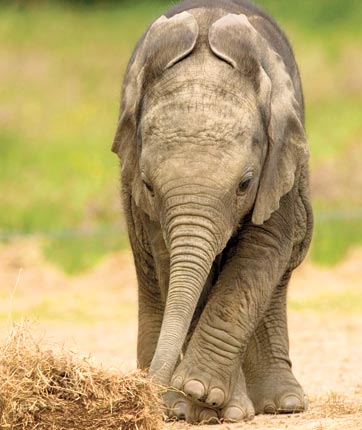'Cruel' treatment of elephants in zoos must stop, says RSPCA

Your support helps us to tell the story
From reproductive rights to climate change to Big Tech, The Independent is on the ground when the story is developing. Whether it's investigating the financials of Elon Musk's pro-Trump PAC or producing our latest documentary, 'The A Word', which shines a light on the American women fighting for reproductive rights, we know how important it is to parse out the facts from the messaging.
At such a critical moment in US history, we need reporters on the ground. Your donation allows us to keep sending journalists to speak to both sides of the story.
The Independent is trusted by Americans across the entire political spectrum. And unlike many other quality news outlets, we choose not to lock Americans out of our reporting and analysis with paywalls. We believe quality journalism should be available to everyone, paid for by those who can afford it.
Your support makes all the difference.No more elephants should be imported into Britain, the RSPCA has said, calling for the animals to be phased out from British zoos.
Recent research has shown that they were suffering from severe welfare problems which range from lameness and obesity to obsessive behaviour, and that it was inappropriate and cruel to keep them in confinement, the society said.
The RSPCA was reacting angrily to a report from the Government's own advisory committee, the Zoos Forum, which endorsed the research findings on welfare problems, but stopped short of calling for an elephant ban.
Britain has 70 elephants in captivity, made up of 37 Asian elephants and 33 of the larger African species. They are being kept in 13 zoos, with the highest numbers being 12 at Howletts Wild Animal Park in Kent, 10 at Chester Zoo, and eight at Whipsnade Zoo near Dunstable in Befordshire, the companion park to London Zoo, which stopped keeping elephants on its 35-acre site in Regent's Park in 2001 when its three remaining animals were transferred to the more spacious Whipsnade.
Two years ago, a group of senior researchers from Bristol University visited all 13 establishments and made a detailed study of elephant welfare, housing and husbandry in them, which raised grave concerns.
The study said that although the zoos were aware of the problems and were continually trying to "enrich and improve" the elephants' lives, there were serious problems. These included difficulties with their feet, their gait and their weight, while nearly 50 per cent of the Asian elephants and 25 per cent of the African animals performed stereotypic behaviours – repetitive, unvarying and apparently functionless actions that indicate distress.
But the study concerned itself merely merely with welfare and made no policy recommendations about zoo elephants in general – a task which had been left to the Government's independent advisory body, the Zoos Forum, which has a wide range of membership, including zoo personnel.
Yesterday the forum published its own report on the welfare study, and acknowledged that the problems needed to be tackled "vigorously".
It set out four "options for the way forward". These were firstly to remove elephants from the UK, secondly to manage the national herd to extinction, thirdly to continue to breed but cease imports, and fourthly a concerted improvement programme. The report is guarded in its verdict but it seems most inclined to the fourth option.
However, it should have opted for the import ban and the "managing to extinction" strategy, the society said. "We are extremely disappointed that the report did not recommend an outright ban on importing elephants to UK zoos," said RSPCA scientist Dr Ros Clubb.
"The RSPCA believes that until solutions to the extensive and serious welfare problems can be found we should not be introducing more elephants. Elephants are without question suffering in zoos.
"Adding yet more to an ailing population simply masks the problems, and if drastic improvements to them cannot be found, the RSPCA believes zoos should phase out elephant keeping."
Join our commenting forum
Join thought-provoking conversations, follow other Independent readers and see their replies
Comments